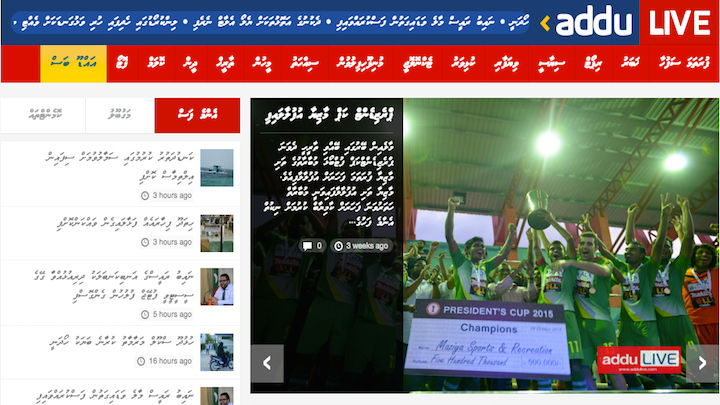AdduLive was blocked because it was not registered, says home ministry
Home Minister Umar Naseer ordered the telecoms regulator to block access to regional news website, AdduLive, because it was unregistered, a spokeswoman has said. Critics have condemned the move as an attack on free speech, noting it has implications for bloggers and other content posted online.

26 Apr 2016, 09:00
Home Minister Umar Naseer ordered the telecoms regulator to block access to regional news website, AdduLive, because it was unregistered, a spokeswoman has said.
The southern Addu City based news site is the first media outlet to be blocked in recent history, and comes amidst an unprecedented crackdown on press freedom in the Maldives.
Hinna Khalid, the home ministry spokeswoman, said in a text message: “AdduLive was blocked on the minister’s instruction as the minister saw it was operating outside the mainstream media without registering.”
Critics have condemned the move as an attack on free speech, noting it has implications for bloggers and other content posted online. Maldivian law does not require registration of news sites. Registration of media outlets is required by on a 2007 regulation.
Become a member
Get full access to our archive and personalise your experience.
Already a member?
Discussion
No comments yet. Be the first to share your thoughts!
No comments yet. Be the first to join the conversation!
Join the Conversation
Sign in to share your thoughts under an alias and take part in the discussion. Independent journalism thrives on open, respectful debate — your voice matters.




